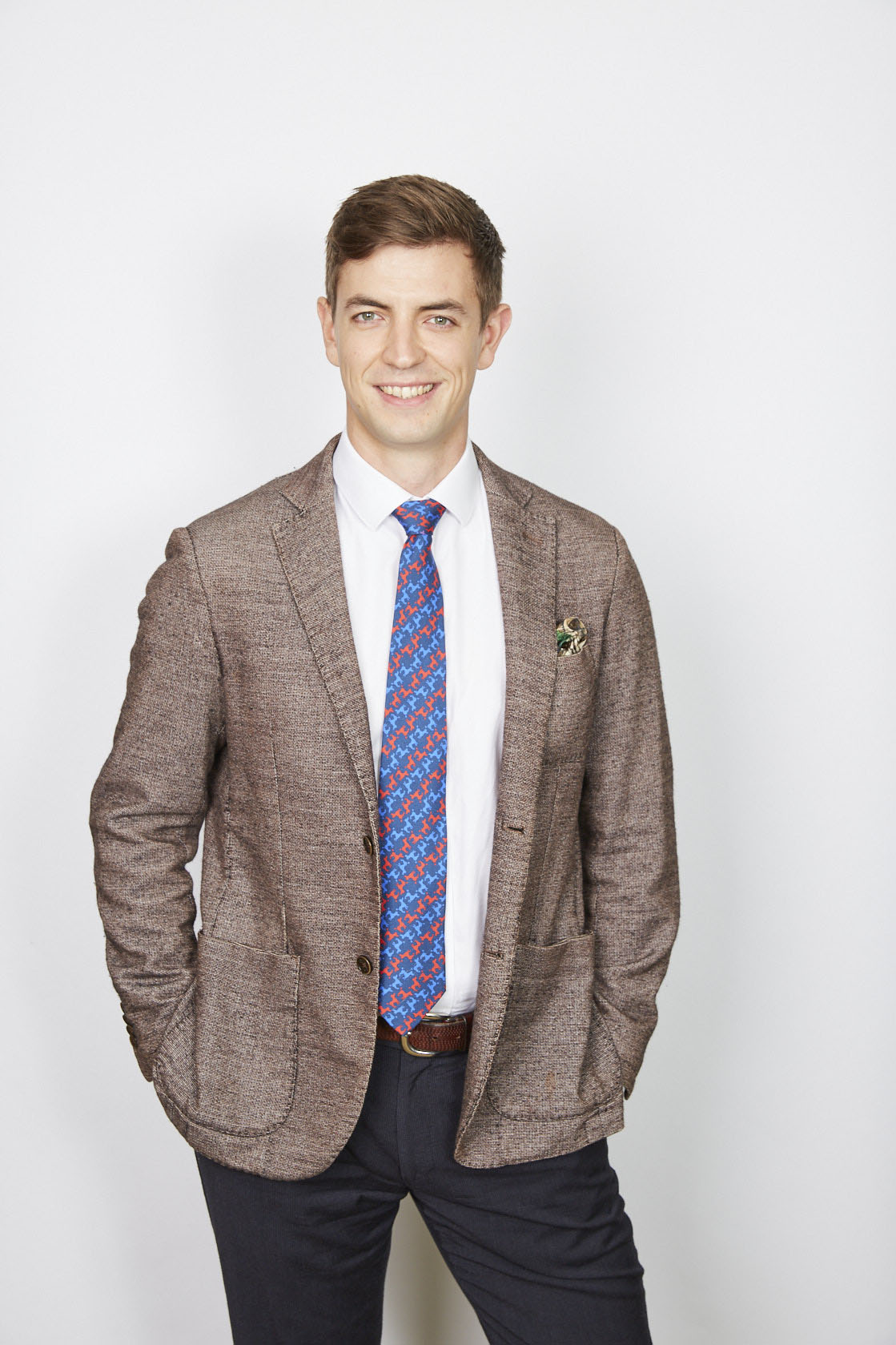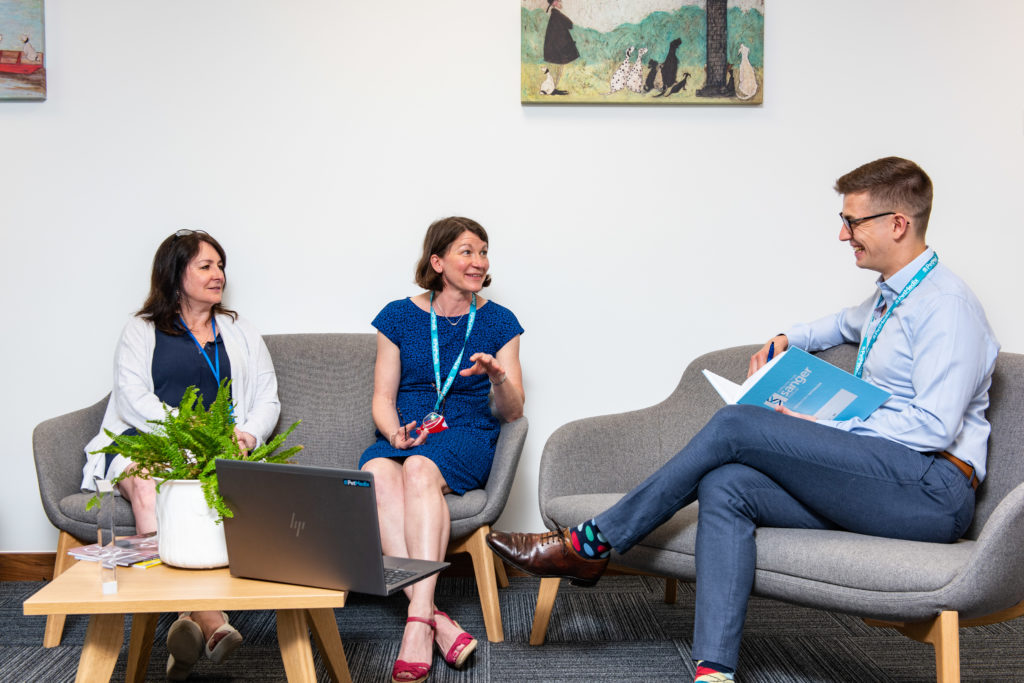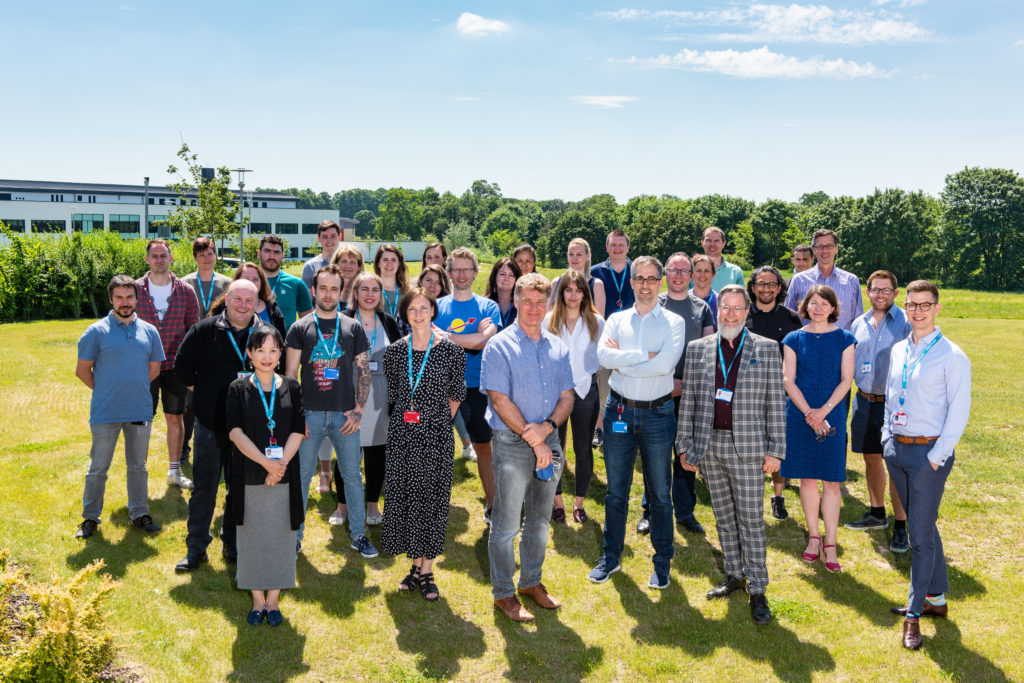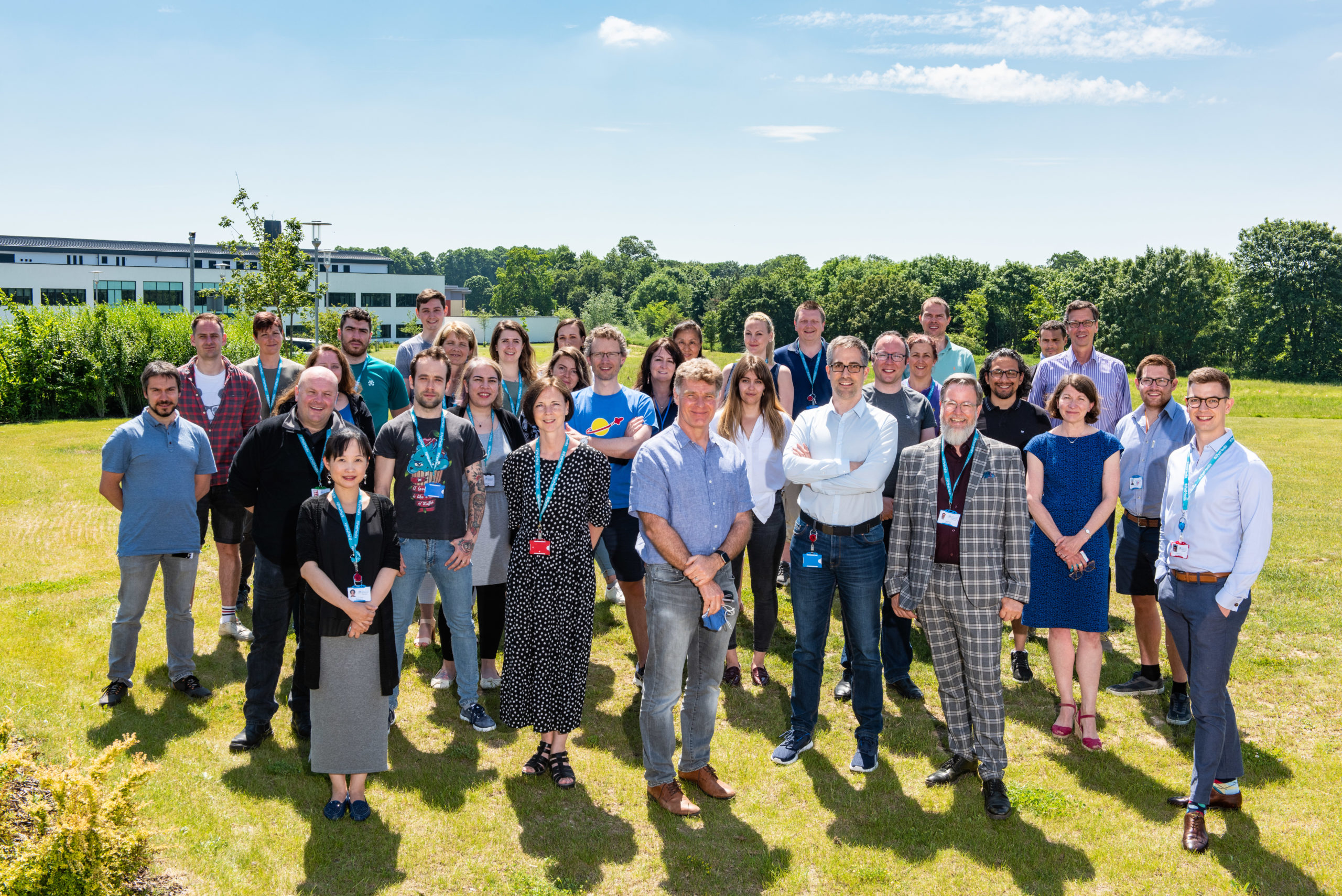Dr Jolyon Martin (2010) studied Natural Sciences at St John’s as an undergraduate followed by postgraduate studies and a PhD in Biological Sciences. He is a Co-founder and Head of Business Development of PetMedix, a Cambridge-based company that is developing therapeutic antibodies for pets.
Your PhD work unlocked the potential to create fully canine antibodies. Tell us about your research and how you have applied it to canine health.

Therapeutic antibodies make up some of the most important human medicines. First approved in the 1980s, there have been multiple generations of technology used to discover and develop them. Transgenic platforms – essentially mice with human immune systems – are the gold standard technology for identifying new therapeutic candidates for humans. Unlike ‘small molecule’ medicines, such as paracetamol or ibuprofen, antibodies are natural proteins and therefore species-specific. I used the know-how and experience from human health and adapted it to unlock the therapeutic potential of antibodies for dogs.
How have your professional and academic networks supported your work?
One of the things that Cambridge (both the University and the town) instils in people is the importance of networks and connections. This is helped by the high concentration of talented and experienced people here. I didn’t know what I wanted to do long term when I started as an undergraduate, but where I am today can ultimately be traced back to a first year supervisor I had that recommended I get involved in a science competition during the summer of my second year. From that point, and via training offered by the Cambridge Judge Business School (CJBS) and taking part in the Cambridge University Entrepreneurs (CUE) competitions, the scientific background that the Natural Sciences course taught me developed into an interest in, and passion for, applied science and entrepreneurship more generally. So, when my future PhD supervisor and co-founder, Prof Allan Bradley FRS, explained where the PhD project could go, I was immediately on board.
I have been very fortunate to have some patient, knowledgeable, and well connected people take me under their wings at various points. Two Cambridge-related ones are Hanadi Jabado, who was leading the accelerator at the CJBS, and Darrin Disley, a serial entrepreneur, bastion of the Cambridge biotech scene, and great supporter of CUE. Both have given a lot of their time and energy to nurturing young, entrepreneurial talent at Cambridge, and I’m grateful to have been one of the people to benefit from that.

As Head of Business Development at PetMedix, you’re at the heart of the business’ commercial strategy. Was that a natural fit for you and how did you develop the skills for that role?
Apart from Allan and myself, the third co-founder of PetMedix is our CEO, Dr Tom Weaver. Tom has been founding CEO of a number of successful life science companies and is experienced at getting a fledgling idea funded and off the ground. At the very start, Tom led the fundraising process. However, he involved me in it from the very beginning and I learnt and improved as I went. I’d had a little training as part of various start-up courses and competitions, but doing it for real is something very different. Funnily enough, working as a student caller for the St John’s College telethon over three years was probably as useful an experience as anything else.
The science of the project was my PhD, so I’m better placed than almost anyone to explain it to investors and answer their questions. I encourage researchers with a technical background and strong interpersonal skills to consider a side-step into a more commercial role. A lot of the commercial skill-set can be taught or learnt as you go, but the ability to truly understand the technical aspects of a project is invaluable.

What are the personal risks and rewards of working in scientific innovation? Did you know this is where your PhD might lead you when you left St John’s?
My first ever meeting with Allan was in the office of his latest spinout, Kymab; a human antibody company that Sanofi bought in Jan 2021 for $1.5B. As we spoke about the project, he told me that, if the science advanced far enough, we could start a company. This vision for the project was actually very useful in providing focus; particularly as a motivator during the trickier patches of the PhD. Plus, it effectively gave me three years’ notice to hone my commercial skills.
Spinning out a company has plenty of risks and challenges. Most start-ups fail, and there is no getting around that. There are the stresses associated with getting an early project funded and off the ground. Your incentive is usually shares in the company, so it is less well paid than working in industry, and far less secure in terms of long-term career advancement. That said, I would strongly recommend early stage researchers (PhD or early post-docs) to consider it. Speak to people that have done it (there are many linked to the College and university, and you’re welcome to connect with me on LinkedIn to get in touch) and see if you think it could be a good fit. Ultimately, I’m having a great deal of fun and really enjoy my work. I’ve been able to learn so much and try my hand at a far wider range of things than I could have in almost any other job. I don’t have dependents or a mortgage so if this fails then I’ll dust myself off and get a more reliable job elsewhere. Now is arguably the best time in my life to be taking these risks and I do so gladly and with my eyes open.
What’s the next thing on your to-do list?
I’ve aspirations to be a founding CEO of a future company, to work internationally, and to mentor more people at the start of their journey.

